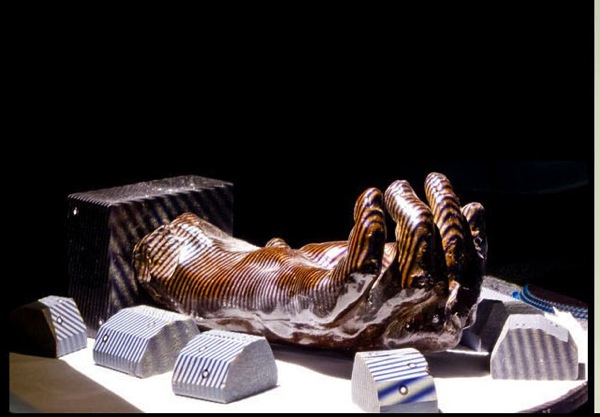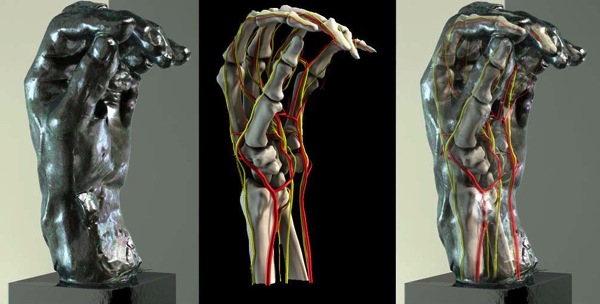Stanford, CA — James Chang fell in love with the Rodin Sculpture Garden at Stanford when he was an undergraduate. Later, while training in plastic and reconstructive surgery at the Stanford University School of Medicine, he visited the Cantor Arts Center with his family on Thursday evenings, where they would enjoy dinner in the café and then the art. His fascination for the work of the famous French artist Auguste Rodin (1840–1917) (wiki) grew as Dr. Chang saw signs in the sculptures of the medical conditions he was learning to identify. Now as a professor in Stanford’s medical school, he shows images of Rodin’s sculptures of hands to medical students and hand surgery trainees, asking them to make diagnoses and hoping the artworks will make learning more fun and memorable.
Dr. Chang’s enthusiasm for this art has also fueled his undergraduate seminar, “Surgical Anatomy of the Hand: From Rodin to Reconstruction” with students studying the hands that Rodin created and their perceived medical conditions aided by advanced technology. Three-dimensional scans of the sculptures combined with CT scans of patients’ bones, nerves and blood vessels create a new “augmented reality” that reveals the pathologies beneath the bronze and even allows students to perform virtual surgery.
“Inside Rodin’s Hands: Art, Technology, and Surgery” opens next week at Sanford's Cantor Arts Center.


Professor of surgery at Stanford analyses Rodin's hands,,,,
ReplyDeleteplastic surgeons